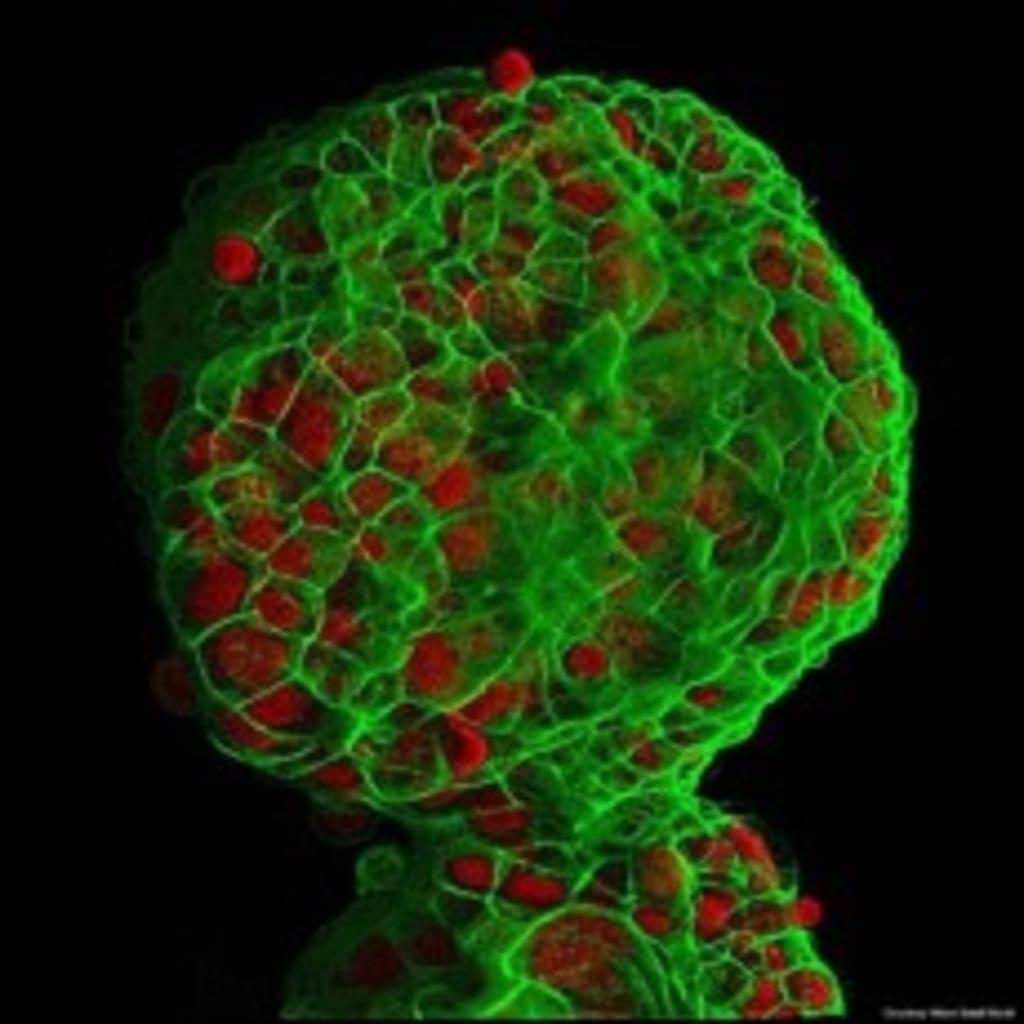Breast Cancer: how Nutrition could Inhibit Metastasis

Los Angeles/Cambridge – The amino acid asparagine, commonly found in foods, could influence the spread of a particularly aggressive form of breast cancer. Researchers reached this conclusion in a multicenter study on therapy-resistant mice and in cell lines, published in Nature (2018; doi: 10.1038/nature25465).
Researchers led by Gregory J. Hannon and Simon Knott investigated breast cancer cells that spread faster than most other cancer cells. This is because receptors for estrogen and progesterone are missing, and the HER2 protein, which serves as a target for breast cancer therapies, is also available only in small quantities. As a result, this breast cancer model resists common treatments.
Initially, the research team established a link between the presence of asparagine synthetase and tumor spread. Both treatment with the cytostatic drug asparaginase, which breaks down the essential amino acid, and an asparagine-poor diet resulted in cancer cells metastasizing only to a limited extent. Conversely, the tumor spread rapidly when the mice received an asparagine-rich diet. The experiments were conducted at more than a dozen institutions.
“Our study adds to a growing body of evidence suggesting that nutrition can influence the course of the disease,” says Knott, Deputy Director of the Center for Bioinformatics and Functional Genomics at Cedars-Sinai. Foods rich in asparagine include dairy products, whey, beef, poultry, eggs, fish, seafood, asparagus, potatoes, legumes, nuts, seeds, soy, and whole grains. Asparagine-poor foods include most fruits and vegetables.
However, the study results are highly suggestive, admits Hannon from the University of Cambridge. The researchers next plan to conduct an early-phase clinical trial in which healthy participants consume an asparagine-poor diet. If this diet leads to a reduced level of the amino acid, a clinical trial with cancer patients could follow. In this case, a diet would presumably be used in conjunction with chemotherapy or immunotherapy, says Knott. The effects of asparagine are not necessarily limited to breast cancer. They could also impact the treatment of other types of cancer, according to the researchers. © gie/aerzteblatt.de
